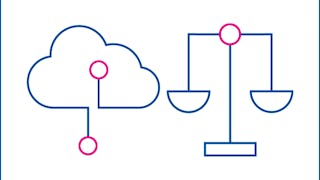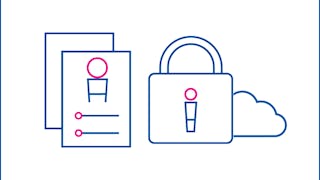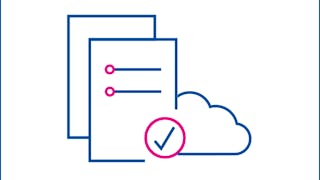Have you ever wondered how a police officer in Europe can obtain evidence from a cloud provider in the USA? Or whether a major cloud provider might abuse its market power? Or in which countries cloud providers pay taxes? If so, then this course is for you!

Enjoy unlimited growth with a year of Coursera Plus for $199 (regularly $399). Save now.

Cloud Computing Law: Law Enforcement, Competition, & Tax
This course is part of Cloud Computing Law Specialization



Instructors: Ian Walden
2,272 already enrolled
Included with
(41 reviews)
Recommended experience
Skills you'll gain
- Cloud Computing
- Tax Management
- Market Dynamics
- General Data Protection Regulation (GDPR)
- Digital Forensics
- Cloud Security
- Regulation and Legal Compliance
- Criminal Investigation and Forensics
- Data Access
- Law, Regulation, and Compliance
- Tax
- Market Analysis
- Competitive Analysis
- Income Tax
- Corporate Tax
- Tax Compliance
- Sales Tax
- Cloud Services
- Interoperability
- Tax Laws
Details to know

Add to your LinkedIn profile
16 assignments
See how employees at top companies are mastering in-demand skills

Build your subject-matter expertise
- Learn new concepts from industry experts
- Gain a foundational understanding of a subject or tool
- Develop job-relevant skills with hands-on projects
- Earn a shareable career certificate

There are 3 modules in this course
In this course, we cover issues that arise when law enforcement authorities need to access data in the cloud. We consider how the technology itself presents forensic challenges and how different types of data are treated differently by the law. We then focus on issues that law enforcement agents face when they seek data that is controlled by a cloud service provider outside of the territory of the law enforcement authority. We discuss the cooperative mechanisms for law enforcement to obtain cross-border data and the conflicting legal obligations that cloud providers may face in this context. By the end of this week, you'll be able to describe how cloud providers can comply with law enforcement access requests.
What's included
11 videos9 readings5 assignments3 discussion prompts
In this course, we cover the basics of competition law and examine how it applies to the provision of cloud computing services. Further, we look at what it means to engage in anti-competitive behaviour in cloud markets and the role of competition law in establishing means to prevent or regulate such behaviour. We also explore how interoperability and portability have the ability to both facilitate and hinder competition in the cloud. By the end of this week, you will be able to apply concepts of competition law to practical cases involving cloud services.
What's included
12 videos5 readings6 assignments2 discussion prompts
This week, we cover the basics of tax law and examine how it applies to the provision of cloud computing services. We start with some basic international tax law concepts, before focusing on the tax treatment of different cloud services. We consider the classification of cloud services for tax purposes and how taxing rights are distributed among different countries. We focus primarily on direct tax, but also briefly refer to indirect tax issues. Furthermore, we look at the challenges digitalization poses to the current international tax framework, and explore how countries and policy-makers have responded to these challenges. By the end of this week, you’ll be able to describe a cloud provider's potential tax liabilities in a hypothetical case study.
What's included
10 videos14 readings5 assignments1 discussion prompt
Earn a career certificate
Add this credential to your LinkedIn profile, resume, or CV. Share it on social media and in your performance review.
Instructors

Offered by
Explore more from Law
 Status: Free Trial
Status: Free TrialQueen Mary University of London
 Status: Free Trial
Status: Free TrialQueen Mary University of London
 Status: Free Trial
Status: Free TrialQueen Mary University of London
 Status: Free Trial
Status: Free Trial
Why people choose Coursera for their career




Learner reviews
41 reviews
- 5 stars
92.68%
- 4 stars
2.43%
- 3 stars
2.43%
- 2 stars
2.43%
- 1 star
0%
Showing 3 of 41
Reviewed on May 6, 2024
Excellent delivery of the subject matter. Highly recommended.
Reviewed on Jul 18, 2023
A wonderful course that provides a great foundational grounding on the matter of Cloud Computing Law.
Frequently asked questions
To access the course materials, assignments and to earn a Certificate, you will need to purchase the Certificate experience when you enroll in a course. You can try a Free Trial instead, or apply for Financial Aid. The course may offer 'Full Course, No Certificate' instead. This option lets you see all course materials, submit required assessments, and get a final grade. This also means that you will not be able to purchase a Certificate experience.
When you enroll in the course, you get access to all of the courses in the Specialization, and you earn a certificate when you complete the work. Your electronic Certificate will be added to your Accomplishments page - from there, you can print your Certificate or add it to your LinkedIn profile.
Yes. In select learning programs, you can apply for financial aid or a scholarship if you can’t afford the enrollment fee. If fin aid or scholarship is available for your learning program selection, you’ll find a link to apply on the description page.
More questions
Financial aid available,





